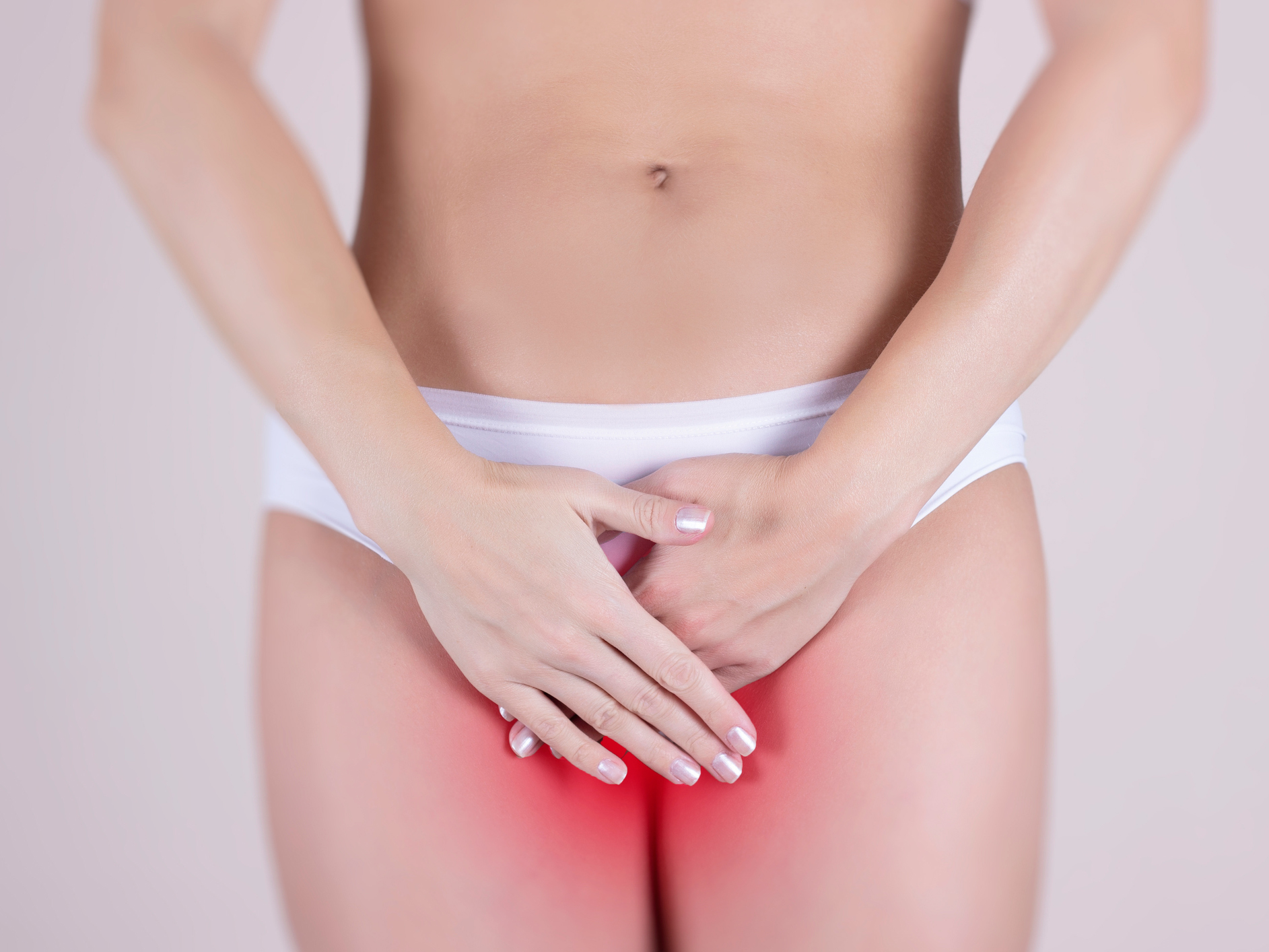Get Easy Health Digest™ in your inbox and don’t miss a thing when you subscribe today. Plus, get the free bonus report, Mother Nature’s Tips, Tricks and Remedies for Cholesterol, Blood Pressure & Blood Sugar as my way of saying welcome to the community!
The plant-like growth in your private area that causes major pain

I’m a big nature buff. I love going to the woods, inhaling the fresh air, soaking in the sunshine, listening to the birds and appreciating the plant life—
The gnarly old oaks. The delicate spring flowers. The lavish, leafy ferns. And, of course, the vibrant green lichens lacing the bark, leaves, and rocks all around me.
Although lichens technically aren’t plants, they look very plant-like… green and lush. Truth is, they’re not actually a single organism. They’re a partnership between a fungus and an algae (like the blue-green algae you take in your supplements). Pretty neat, huh?
But do you know when lichens are less neat? When they take up residence on your body parts. Particularly your private ones.
Now, before you get concerned you’re going to “catch” a case of lichens on your next visit to the nature preserve, let me clarify…
I’m not saying that real-life lichens (like the ones growing on your favorite juniper tree) can grow on the human body. But there are few diseases that cause you to develop lichen-like growths in your most sensitive areas. And these little-known diseases could wreak havoc on your health and life.
Look like you’re growing lichens down there? Here’s why…
Let’s say you start feeling a little itchy in your lady parts. You figure you have a yeast infection, buy an antifungal like Monistat and call it a day.
But when the itching doesn’t stop you take a closer look. And you notice strange white patches taking over your nether regions. What the heck is happening?
Well, these strange white patches (that kind of resemble lichen) are caused by a condition called lichen sclerosus. It typically appears in the genital or anal region. And it’s most common in postmenopausal women. Although, it can pop up in children, young women and men too.
Besides the itching and white patches, lichen sclerosus also causes symptoms like:
- Redness
- Pain
- Blotchy, wrinkled patches
- Tearing or bleeding
- Bleeding, blistering or ulcerated sores
- Painful sex
The good news is, lichen isn’t contagious, which means you can’t pass it on to your partner during sex. The bad news is, most women with lichen sclerosus don’t feel much like having sex because they’re so uncomfortable. Even worse, the condition is often overlooked by doctors, which means many women wait way too long for treatment.
You see, lichen sclerosus typically affects the vulva, and that area often isn’t examined closely during a pelvic exam. Even women who have the condition may not notice the white patches and just notice other symptoms, like pain during sex. But if a postmenopausal woman visits her doc and complains of pain during sex, her doc might just assume it’s a normal part of “the change” and totally overlook the disease.
Here’s a bit more bad news…
Lichen sclerosus isn’t the only lichen-mimicking disease that can make things difficult down there. There’s also lichen planus. Now, lichen planus usually affects other areas of the body, like the mouth, but it can strike in the pelvic region too. It can cause white patches, sores, itching and other uncomfortable symptoms, and it’s most common in middle-aged adults.
How to keep lichen-like disease from ruining your (sex) life
Lichen sclerosus and lichen planus aren’t life-threatening conditions, but they are life-changing conditions.
Both conditions can cause serious pain that bites into the quality of your life, particularly your sex life. In fact, some women with lichen sclerosus say it led to the demise of their marriages. Severe cases can cause permanent damage to your genital area. And both conditions increase the risk of skin cancer.
Unfortunately, these lichen-like diseases are still mysteries to the medical community. They don’t know with certainty what causes them or have a surefire cure. They believe both conditions are caused by autoimmune reactions, which means they often treat them with steroid creams and ointments.
Sometimes, treatments like ultraviolet light therapy and immunosuppressive drugs are used too. But the long and short of it is, there’s no guaranteed way to get rid of these uncomfortable conditions. There is, however, some hope to improve the conditions through diet.
Since these problems are likely caused by autoimmune reactions, autoimmune protocol diets could bring some relief. If you want, you can try the diet protocol Dr. Terry Wahls used to reverse her secondary progressive MS.
Limited evidence also shows that avoiding foods that are high in a compound called oxalates can reduce pain. People prone to kidney stones often find benefit from low-oxalate diets too. Here are some high-oxalate foods to avoid:
- Spinach
- Pineapple
- Boxed cereals
- Dried fruit
- Rhubarb
- Rice bran
- Bran flakes
- Soy flour
- Brown rice flour
- Almonds
- Potatoes
- Buckwheat oats
- Beets
- Turnips
- Cocoa powder
- Almonds
- Nut products, like peanut butter
Editor’s note: Hi friend, if you’re visiting from Facebook, could you do us a favor and help this post reach more people? Many people suffer from this condition in silence. For whatever reason, Facebook will only allow our posts to reach a small fraction of our more than 440,000 followers. Seems like censorship but they call it algorithms. Thank you!
Sources:
- Lichens — Utah State University
- A Little-Known Skin Disease That Can Disrupt People’s Sex Lives — The New York Times
- Lichen Sclerosus — Cedars-Sinai
- Lichen sclerosus — Mayo Clinic
- Lichen sclerosus — National Institute of Health
- Lichen planus — Mayo Clinic
- Lichen Sclerosus Diet: Foods to Eat and Foods to Avoid — Healthline
- Foods High in Oxalate — University of Michigan













